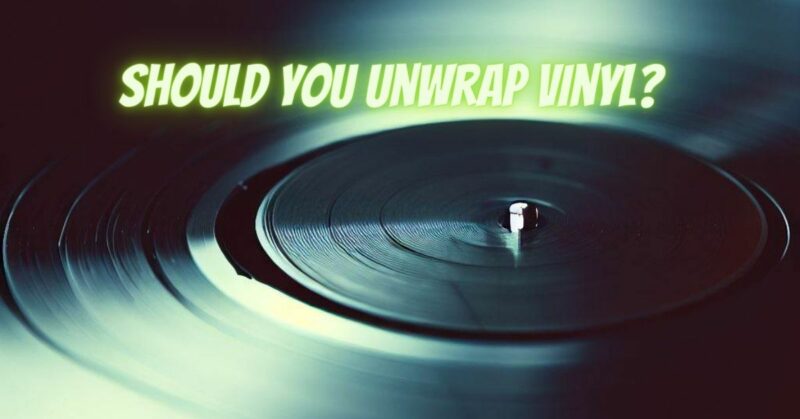Vinyl records have experienced a remarkable resurgence in popularity, captivating both audiophiles and new generations of music enthusiasts. The tactile experience of holding a vinyl record, the distinct warmth of analog sound, and the allure of album artwork contribute to the vinyl’s timeless appeal. Yet, a question that often perplexes collectors and enthusiasts alike is whether one should unwrap vinyl records before playing them. In this exploration, we will unravel the considerations and dispel myths surrounding the age-old dilemma of whether to keep vinyl records sealed or unwrap them for optimal listening pleasure.
Preserving the Collector’s Value:
For many vinyl enthusiasts, collecting records is as much about the physical artifact as it is about the music. Sealed vinyl records often hold a certain mystique and collector’s value, especially if they are rare, limited editions, or possess historical significance. Keeping a vinyl record sealed can help maintain its pristine condition, preserving the packaging, inserts, and, in some cases, special features that contribute to its collectible appeal.
Considerations for Audiophile Sound Quality:
While preserving the collector’s value is a valid reason to keep vinyl records sealed, those seeking the ultimate audio experience might question whether unwrapping vinyl makes a difference in sound quality. In reality, the act of unwrapping a vinyl record itself does not impact the sound. However, the condition of the record and its storage environment are crucial factors that can influence sound quality.
Vinyl records are susceptible to environmental factors such as temperature, humidity, and exposure to sunlight. If a record has been stored properly in a cool, dry place, keeping it sealed may have minimal impact on its overall condition. However, if a record has been stored in less-than-ideal conditions, opening the seal might allow for better inspection of the vinyl and its surfaces.
Storage Conditions and Inspection:
Vinyl records are sensitive to their storage environment, and factors like dust, moisture, and contaminants can affect playback quality. Before deciding whether to unwrap a vinyl record, it’s essential to consider the conditions in which it has been stored. Records stored in a controlled environment with low humidity and minimal exposure to dust are likely to be in good condition, even if sealed.
For collectors who prioritize inspecting the vinyl for potential flaws, such as warps, scratches, or pressing defects, unwrapping is a practical step. However, it’s crucial to handle the record with care, using clean hands and a suitable environment to avoid introducing dust or damaging the vinyl during the unwrapping process.
The decision to unwrap a vinyl record ultimately depends on the collector’s priorities and the desired listening experience. For those who value the collector’s aspect, preserving the seal can enhance the record’s value. Audiophiles seeking optimal sound quality should prioritize proper storage conditions and, if necessary, carefully inspect the vinyl for potential issues.
In the end, whether to unwrap a vinyl record is a personal choice guided by individual preferences. The magic of vinyl lies not only in the sound it produces but also in the experience of ownership. Whether sealed or unwrapped, a vinyl record holds the power to transport listeners into the heart of their favorite music, making the decision to unwrap or preserve part of the broader tapestry of the vinyl enthusiast’s journey.


